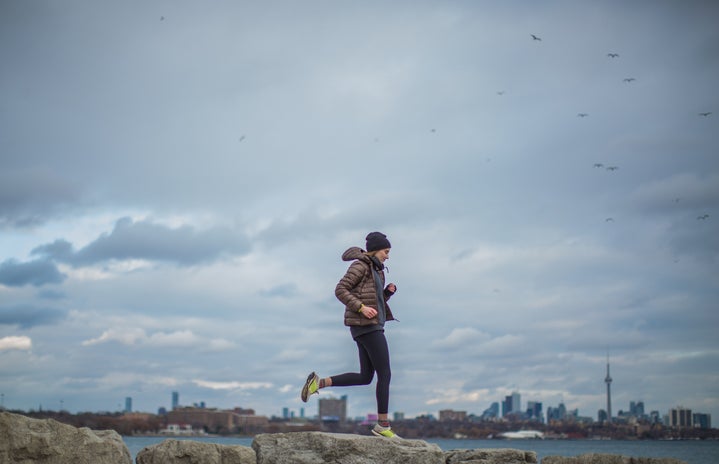Now onto Rest, the most under-utilized aspect of healthy running. The easiest way to sum up running gains equates to stress + rest. “Stress” is anytime we work our muscles by running, cross-training, or lifting, and “Rest” is any period of time we engage in low-energy activities such as sleep and relaxation. As any experienced runner will confirm, none of us think we need rest until we rae forced to by muscles and joints rendered incapable of performing due to painful injuries. We must constantly remind ourselves that days off between runs allows our bodies to rebuild the stress-induced tears in our muscles and thus make us stronger and less prone to injuries.
However, I, along with many other self-diagnosed “running addicts”, know the unexplainable urge to run despite our bodies’ best wishes. So at Tulane, we turn to good ol’ Reily to supply us with non-impact options such as swimming, cycling, and the elliptical to fulfill our cardio needs without teetering the line between endorphins and injury. While these low-impact activities still stress our muscles, this stress is minimal compared to the consistent pounding of running. Non-running days are also a great option to utilize some of the strength training classes mentioned in the last article, along with more relaxed class options such as Foam Rolling and Stretch and a variety of yoga classes.
Another thing we need to remember is the importance of true relaxation when it comes to allowing our muscles to rebuild. According to a study by Pennsylvania State Medical School, athletes who got less than eight hours of sleep were almost twice as likely to get injured as those who slept for eight or more hours. During the REM stage of sleep, our bodies engage in heightened levels of cell reproduction and regeneration, allowing athletes to rebuild muscle and tissue mass. Therefore sleep is not only important for muscles gains, but also for repairing microtears in the tendons and ligaments that cause the most serious running injuries. Sleep also has many correlations between academic performance, mental health, and daily mood, all factors that can reduce our overall physical and mental stress.
Personally, I cannot say enough to advocate for good quality sleep. When I prioritize my sleep, I feel better in all aspects of my life and more confident that I can tackle anything the day throws my way. No one can argue that we work hard as runners, and recognizing our well-deserved rest will keep us healthy enough to continue the sport we love.


